Knowledge Hub
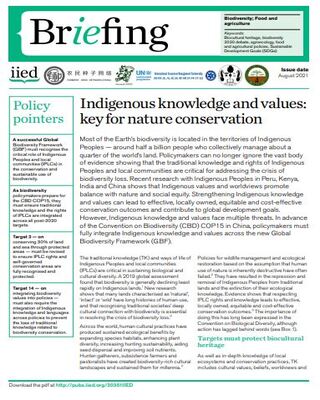
Indigenous knowledge and values: key for nature conservation
2021
Author(s): Swiderska K, Argumedo A, Song Y, Rastogi A, Gurung N, Wekesa, C, Li G
This research shows that, across different Indigenous cultures, TK enshrines core values of balance, reciprocity and solidarity with nature and in society that provide flexible principles for sustainable and equitable development. These can be strengthened as the basis for community owned, equitable and self-sustaining conservation and development initiatives, such as biocultural heritage territories.
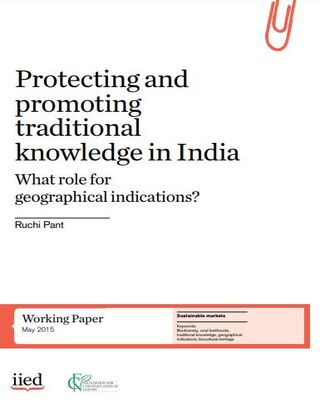
Protecting and Promoting Traditional Knowledge in India: What Role for Geographical Indications?
2015
Author(s): Pant, Ruchi
This paper explores the opportunities and challenges associated with the use of geographical indications (GIs) to promote biocultural products in the market. Biocultural products are produced using traditional knowledge (TK). They are typically unique to a geographical area and are derived from the particular biological resources, traditional knowledge and cultural values and practices associated with the landscape – which make up the `biocultural heritage’ of indigenous peoples and local communities.
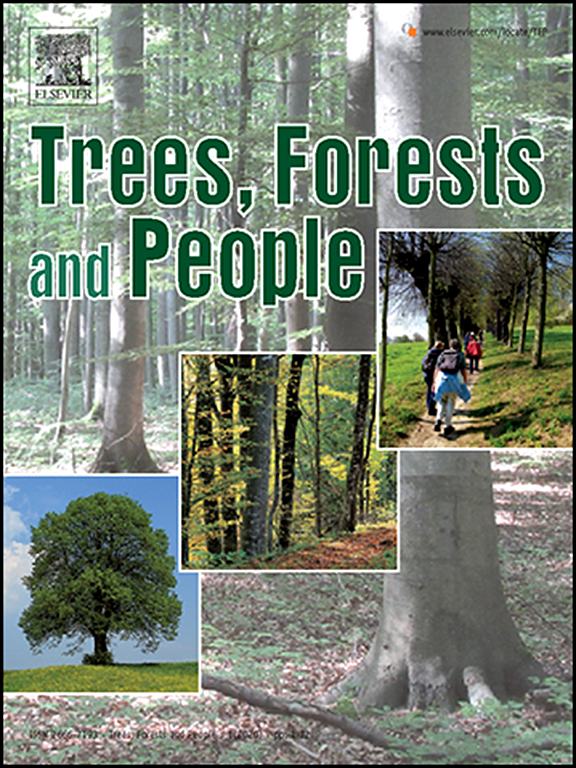
Role of Traditional Ecological Knowledge on Field Margin Vegetation in Sustainable Development: A Study in a Rural-Urban Interface of Bengaluru
2023
Author(s): Nautiyal S, Goswami M
This study attempted to understand and document the uses of Field Margin Vegetation (FMV) by farmers and related traditional knowledge in rural-urban interface of Bengaluru, India. The agricultural landscape under study was found to be rich in FMV species belonging to 43 families. These species are used for a variety of purposes by the people l living in the rural-urban fringe of the northern transect of Bengaluru.
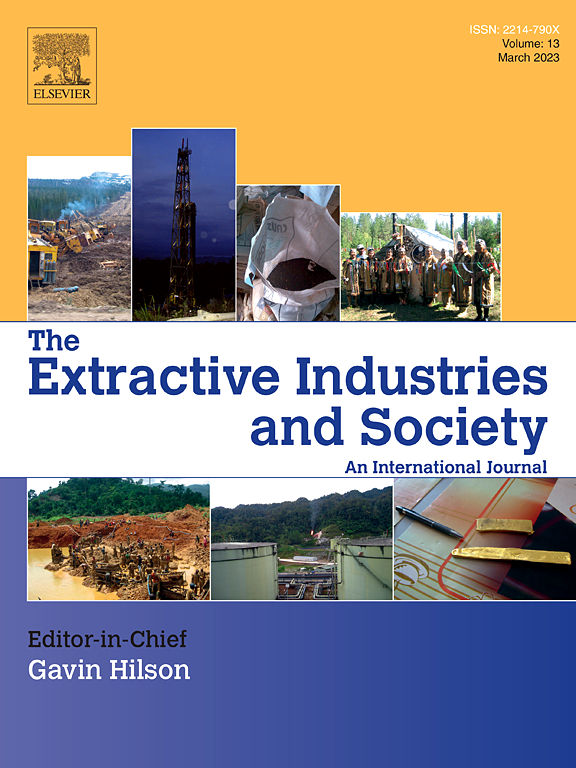
Integration of Cree traditional ecological knowledge (TEK) into the revegetation process of the Eleonore mine tailings storage facility
2023
Author(s): Kadiatou Cissé MK, Keeling A, Guittonny M, Bussière B
This research analyzes the process of TEK integration into the Eleonore TSF revegetation planning by documenting the Tallyman of VC-29′s TEK integration into the mine TSF revegetation process through a “co-design approach”. Results indicate that the Quebec government recommends but does not require mining companies to integrate TEK in reclamation planning.
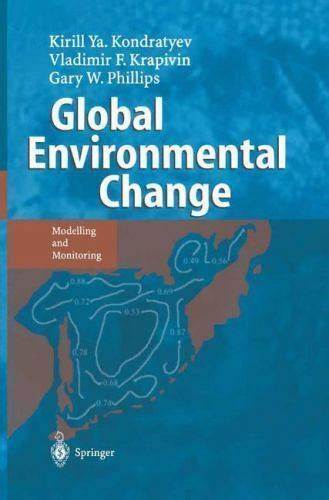
Assessing the State of Traditional Knowledge at National Level
2021
Author(s): Mistry J, Jafferally D, Xavier R, Albert G, Robertson B, Benjamin R, Mendonca S, Ingwall-King L
The study presents the status of traditional knowledge in Guyana at the national level. It adopts indicators to assess the perception of the status of traditional knowledge through participatory video used by Indigenous people to reflect and provide solutions. The study aims to inform decision-making through collective narratives by Indigenous peoples.
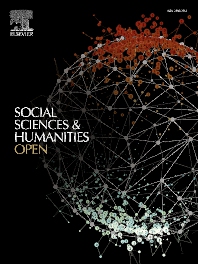
Traditional Knowledge for Climate Change Adaptation in Mesoamerica: A Systematic Review
2023
Author(s): Mardero S, Schmook B, Calmé S, White RM, Chang JCJ, Casanova G, Castelar J
Local traditional knowledge makes important contributions to climate change actions and policy by observing changing climates, adapting to impacts, and contributing to global mitigation efforts. As a response to increasing climate change challenges, smallholders create new hybrid knowledge by combining traditional and western perspectives. This knowledge evolution will support greater resilience to climate change but may hasten cultural erosion and exacerbate social inequalities in the region unless efforts are taken to maintain cultural integrity.
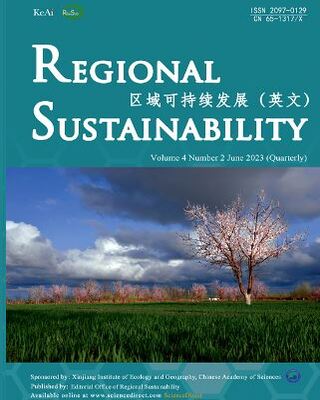
Traditional Agroecological Knowledge and Practices: The Drivers and Opportunities for Adaptation Actions in the Northern Region of Ghana
2022
Author(s): Yeleliere E, Yeboah T, Antwi-Agyei P, Peprah P
This paper analyzed traditional agroecological knowledge and practices and their adaptation opportunities to address climate change and promote the existence and sustainability of local innovation. It highlights traditional agroecological knowledge and practices drawn from the long-term experience and technical capabilities of smallholder farmers themselves.
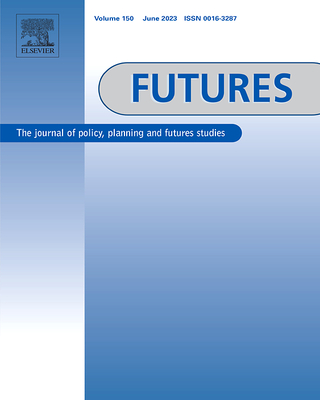
Weaving the Links: Traditional Knowledge into Modern Science
2023
Author(s): Ray S
This paper provides the perspectives of the web links from an Indigenous world and the modern science view. Integrating the Indigenous knowledge into modern science and addressing the gaps in the traditional knowledge for science-policy assessments should be set as a high priority.
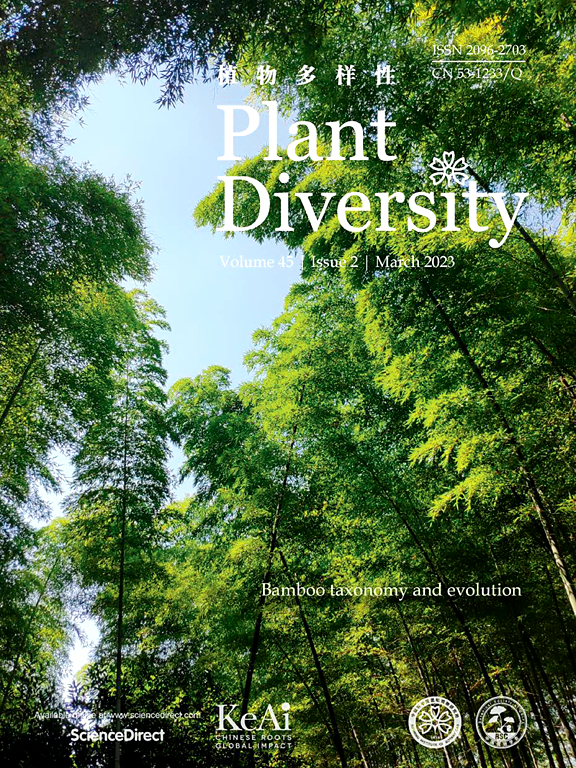
Assessing the Effectiveness of Community Managed Forests for Plant Diversity Conservation in Meghalaya, Northeast India
2022
Author(s): Mir AH, Sarma K, Upadhaya K
The present study was conducted to assess the plant diversity and identify the community forests for priority conservation in Khasi Hills of Meghalaya. The conservation priority map generated in the present study will help to concentrate the protection strategy to the demarcated and adjoining areas and help conservationists and planners to evolve effective strategies for conservation of the community forests.
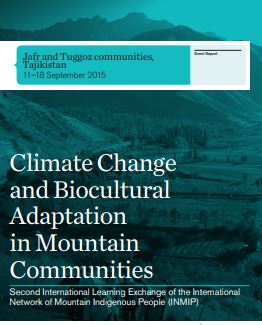
Climate Change and Biocultural Adaptation in Mountain Communities
2016
Author(s): Swiderska K, Malmer P
This report provides a record of recent climatic changes experienced by 21 indigenous mountain communities in 10 countries, and of the solutions they have developed based on traditional knowledge and experimentation.



